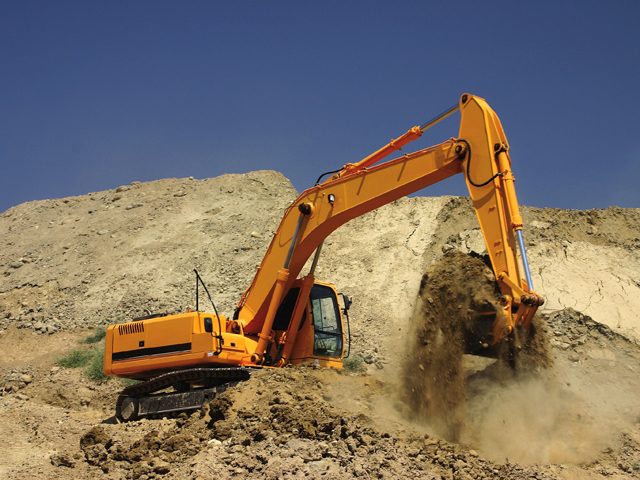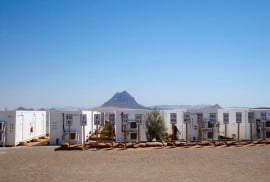
The Supreme Court on Thursday suggested to the federal government to devise a policy and constitute an authority on the pattern of CPEC for the Reko Diq project, which would keep reviewing the multi-billion dollar venture.
The apex court made these remarks while hearing the presidential reference on the project.
President Arif Alvi, on the advice of Prime Minister Shehbaz Sharif, had filed the reference to seek the top court’s opinion on the Reko Diq out-of-court settlement deal.
On Wednesday, the additional attorney general (AAG) told the Supreme Court that Barrick Gold Corporation’s previous licence for mining gold in Balochistan’s Reqo Diq area had been cancelled and it would now be given a new one.
A five-member larger bench led by Chief Justice Umar Ata Bandial and comprising Justice Ijazul Ahsan, Justice Munib Akhtar, Justice Yahya Afridi and Mazahar Ali Akbar Naqvi heard the case on Thursday.
During the course of proceedings, the chief justice while suggesting to constitute an authority and devise a policy on the Reko Diq project remarked that the previous agreement was declared null and void due to relaxation of rules for a particular company.
The top judge inquired whether the exemptions and relaxation of rules in the Reko Diq project could be made part of the policy. He said it will be easy for the court to take a decision once a policy is framed, adding that a uniform policy for all foreign investors would ensure transparency.
The AAG replied that country’s biggest investment of $10 billion was being made in the Reko Diq project. He said the mega project will build the confidence of the foreign investors and bring investment in the country.
The chief justice asked the AAG to satisfy the court and remarked why the government was formulating a new law for a particular company.
He said time and again it was being said that the national exchequer would have to bear a burden of $10 billion if the Reko Diq project is not completed by December 15.
The AAP replied that the court was not being made scared and added that people would have to bear the brunt if a penalty of $10 billion was imposed and that Balochistan government was an equal shareholder in the agreement.
The chief justice said that Balochistan government was “not a very strong authority” and asked who would take care of the mining agreement and entire Reko Diq project.
He suggested to the government to form an authority on the pattern of the CPEC for the project, which would keep reviewing the venture.
He said the court did not want to see the mega project being destroyed again.
The top judge noted that the country was still bearing a burden of $4.5 billion in the Reko Diq project. He said the government could relax the rules to ease a deal but could not compromise on quality.
The court directed that the rights of the people in the adjoining areas of Reko Diq should not be affected.
Later, hearing of the case was adjourned till November 14.




1730884134-0/BeFunky-collage-(26)1730884134-0-165x106.webp)




1730379446-0/WhatsApp-Image-2024-10-31-at-17-56-13-(1)1730379446-0-270x192.webp)
1730985983-0/Express-Tribune-Web-(28)1730985983-0-270x192.webp)
1730797335-0/Untitled-design-(81)1730797335-0-270x192.webp)








COMMENTS
Comments are moderated and generally will be posted if they are on-topic and not abusive.
For more information, please see our Comments FAQ